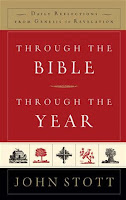(In honor of Nancy Thonus Hudson, my high school friend who has served the Wycliffe Bible Translators for nearly thirty years.)*
Bible translation is an ancient and venerable practice. One of the earliest was in Coptic for
Egyptians, which dates to AD 270. An
Ethiopic translation was completed in early 5th century AD. Fragments of an early Syriac translation has
been discovered, which is not surprising since one of the major early ethnic
churches was the Syrian Church. Between
the years AD 350 to AD 439 the Scriptures were translated into Armenian for those
in the Caucasus mountain region and in an adjacent region another translation
into Georgian was done in AD 450. An old
Latin Bible was completed in AD 195 (which Augustine used) and Jerome completed
his new and improved Latin Vulgate (vulgates
referring to the common tongue) in 404 AD.
Unlike the old Latin Bible, Jerome relied on the original Hebrew in his
translation. This particular translation was to dominate the landscape in the
Middle Ages, and unfortunately led the Western Church to neglect the original
languages of the Bible up until Erasmus and Luther. Much more could be said about translations
in the East as well as the history of translations in English. However, at this point we should note four
features of translations in the early history of the Church:
- . Translations were a function of the missionary nature of the Christian Church which was a vernacular movement, the assumption being that people needed to hear the word of God in their own native tongue (cf. Acts 2).
- . The whole process started in fits and starts and because of the needs of the missionaries, not because of some central authority’s efforts. Thus, these early translations are uneven in quality.
- . It was assumed that a translation of the Bible could be called the word of God for this language group, yet…
- . Figures such as Jerome and much later Erasmus, Luther and Tyndale realized that these vernacular translations needed to be based on the original Hebrew and Greek texts.
All English translations are in some measure dependent on
the ground-breaking translation of William Tyndale, who in turn was influenced
by Luther’s translation. He was both a
first-rate Greek scholar and master of early English prose. To him we owe memorable phrases like “my
brother’s keeper” (Gen. 4:9), “the salt of the earth” (Matt. 5:13), “a law unto
themselves” (Rom. 2:14) and “the powers that be” (Rom. 13:1). As you can tell, Tyndale was attentive to the
aural qualities of the Bible. He
understood that the written text was in service to its oral quality and purpose:
scriptures were originally written primarily to be read and heard a loud in public worship.
When people ask me why I (and now Truro) use the ESV for
public worship its oral quality is one of the primary reasons I give. There are numerous good translations on the
market; I own and read several of them. But
I prefer the ESV for public worship because it stands squarely in the Tyndale
tradition of Bible translation, especially his concern for good aural
sense. Because I also believe it is
important for the Christian community to memorize key portions of the Bible, the
ESV excels over other translations in this regard as well. As a literal translation, it attempts to
follow the rhythm and rhyme, the alliteration and assonance of the original
text. The ESV has preserved the felicitous and memorably translated phrases of
Tyndale which are noted above.
I encourage you to
buy a reference edition for your personal study. Mostly I encourage you to “read, mark, learn
and inwardly digest” the word of God in whatever translation you use. For the word of God is “living, active and
sharper than any two-edged sword” exposing our souls to God and God to our souls
so that we can become wise in matters of eternal significance.
*Heavily indebted to Alistair McGrath's In the Beginning: The Story of the King James Bible... and Ben Witherington's The Living Word of God
*Heavily indebted to Alistair McGrath's In the Beginning: The Story of the King James Bible... and Ben Witherington's The Living Word of God
















